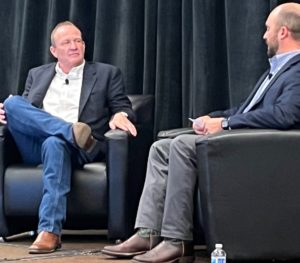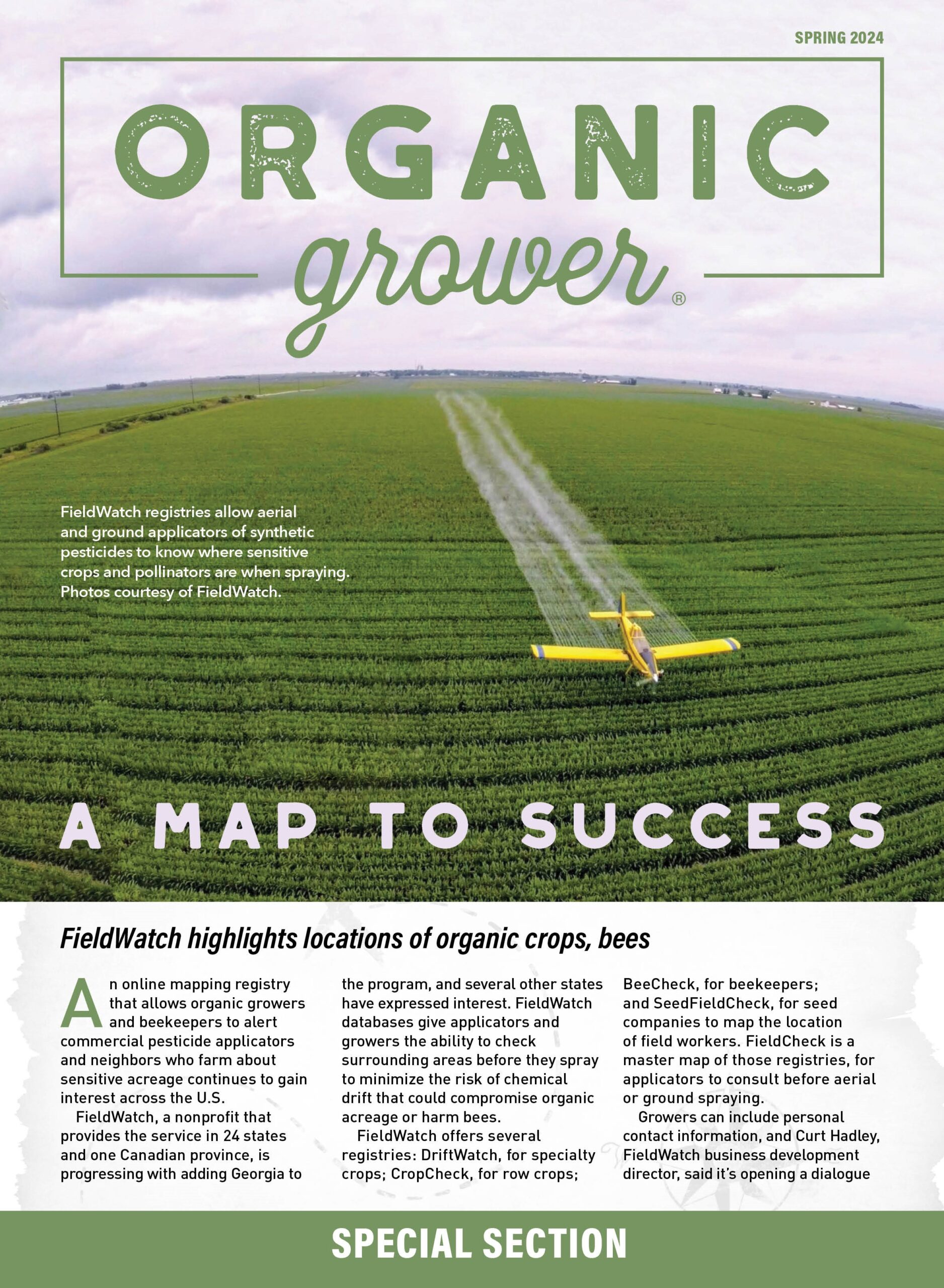Dec 27, 2022
2022 Organic Grower Summit tackles industry issues
Leading organic growers from across the country and globe gathered to discuss issues facing the industry at the 2022 Organic Grower Summit earlier this month in Monterrey, California.
Growers, CEOs and coalition leaders discussed topics ranging from the benefits and drawbacks of Controlled Environment Agriculture to the future of organic growth, while equipment manufacturers displayed cutting-edge technology and the Organic Grower of the Year took the stage.
In a wide-ranging panel discussion, leaders of three large grower-shippers talked about the challenges involved in growing and selling organic produce but remained confident the industry will continue to grow.

Dave Puglia, president and CEO of Western Growers, moderated the discussion, which included Brie Reiter Smith, vice president of product leadership at Driscoll’s of the Americas; Michael DuPuis, public relations manager at Divine Flavor; and Tom Nunes V, president of The Nunes Co.
The panelists agreed there has been a drop in organic sales in 2022. Second quarter Nielsen data revealed that while organic produce sales stood at $2.4 billion, up 3.7% from the same period in 2021, volume dropped by 2.8%, with 748 million pounds of organic produce sold.
“There’s a saturation point,” said Nunes, the fourth-generation leader of the Salinas, California-based company which grows Foxy brand produce on more than 20,000 acres. “Consumers want quality as good as conventional and a price point close (to conventional) as well.”
Smith said retailers, who ask for more quality volume of the organic berries Driscoll’s produces throughout the year, can help move the product by displaying organic products together for ease of location and comparison, while DuPuis said the consistency of the product and its pricing is key.
“These days you have to be very reliable,” he said. “We’re not only in the produce business, but we’re also in the flavor business.”
Retail consolidation is limiting the power of tens of thousands of organic producers, while ongoing labor shortages and potential regulations also pose issues, the panelists said.
California Gov. Gavin Newsom is considering a European Union policy mandating organic farming make up 30% of all agricultural production by 2030, a prospect Smith called “scary” in the face of climate change, pest pressure and the fact that “we don’t have water here,” she said. “The thought of committing to a system that requires more water per parcel is horrifying.”
Like the other panelists, though, Smith expressed confidence that organic sales will continue to grow, saying that Driscoll’s has a 60% market share in the organic berry category in the U.S. and that organic berry sales account for about 25% of the company’s revenue.
The role of CEA
Another topic discussed by that panel was CEA, also the subject of its own roundtable. Tom Stenzel, executive director of the CEA Food Safety Coalition, moderated that discussion, which included Robinson Fresh Director of Supply Molly Tabron; CEO Arama Kukutai of Plenty; and Matt Ryan, CEO of Soli Organic.

Both panels debated whether marketing CEA-labeled products has the potential to both interfere with organic labeling’s market space and confuse consumers.
“Most consumers don’t understand what organic really means,” said Kukutai, an agritech entrepreneur and venture capitalist. “No one’s running out saying, ‘Let me go get my CEA strawberries.’ ”
Tabron said there has to be a greater focus on connecting a rapidly expanding group of CEA growers with sellers to strengthen the supply chain and ensure the product reaches consumers.
“Just because you can grow it doesn’t mean you can sell it,” she said.
The panelists agreed on the benefits of CEA, an intensive, indoor form of hydroponically based growing that limits pests and while controlling growing mediums, water usage and other factors. Kukutai said more strategic partnerships with big-box retailers are necessary to help grow CEA awareness and demand, while Ryan said the industry must address its electricity consumption and evolve beyond the microgreens it’s currently known for producing.
“If we don’t go beyond baby greens and basil, we’re never going to matter,” Ryan said.
All agreed there is a place in the market for CEA products, with Kukutai saying the practice “unlocks new opportunities” to increase global food supply at an affordable price point.
The precision and control of CEA is what’s new, he said, not indoor growing itself. While it will not replace outdoor farming, “indoor farming is not going away,” Kukutai said. “We need all the tools we can get our hands on to sustainably feed the planet.”
Grower of the Year
Capping the summit was the announcement of the 2022 Organic Grower of the Year. Fourth-generation farmer Jeff Huckaby, president and CEO of Grimmway Farms, accepted the honor after watching a video tribute lauding him as an industry rock star.

“It’s pretty interesting to receive an award for something you get up and do every day,” said Huckaby, also named the 2020 Organic Farmer of the Year by the Organic Trade Association and the 2019 Produce Man of the Year by The Packer magazine.
Bakersfield-headquartered Grimmway Farms has grown from a local produce stand started by the Grimm brothers in the 1960s into the world’s largest producer of carrots. Offering more than 135 products worldwide, Grimmway grows 65 organic vegetables on what is now 56,000 acres of land devoted to organic farming.
“We found, with a lot of trial and error, that growing organic was not like growing conventional carrots,” Huckaby said.
After joining Grimmway Farms in 1998, Huckaby was charged with expanding the company’s organic portfolio. That effort ramped up after the 2001 acquisition of pioneering organic producer Cal-Organic Farms, established in 1984.
Despite initial doubts that carrots could be grown organically, Huckaby forged ahead, learning about crop rotation, cover crops and the vital role soil health played in improving yields.
Today, Grimmway Farms grows in seven states, having opened production facilities in Washington in 2013 and Georgia in 2018.
“We had to learn along the way, with a lot of failures and then some successes,” Huckaby said. “ … It was just being in the right place at the right time and having the support of a good farming family and a vision.”






